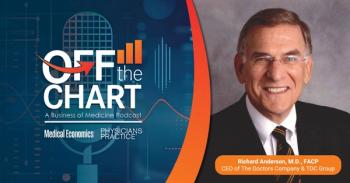
Disability Income Protection: Prepare for the unexpected
Getting the right income protection insurance takes a considerable weight off your shoulders, allowing you to focus on what matters most—healing others.
In 2020, we have all learned to expect the unexpected. We may not have had the opportunity to prepare for Covid-19 properly, but we should take this crisis as a reminder to consider any future problems we may foresee. One such scenario is the possibility of a disability that would affect your work as a healthcare professional.
Disabilities in American adults are startlingly common. A report from the
That’s why American workers must protect themselves from income loss due to disability. And for healthcare professionals, the risk is even more significant because they often have relatively high incomes, and they may not be able to perform their usual surgical procedures with even a minor disability.
For example, if a highly specialized surgeon develops a minor disability that affects his or her dexterity, the surgeon may be forced to transition into family practice or other practice—potentially putting their practice and income at risk.
Healthcare professionals usually learn the importance of disability insurance in medical school. But, as time passes and income increases, it’s critical for professionals to own a policy that adequately protects their most valuable asset—the ability to practice their medical specialty on which they’ve built their career.
Why should I revisit my disability policy?
Disability insurance shouldn’t be a “set it and forget it” matter. It’s crucial to assess your coverage periodically. Here are a few reasons why now is the time to take another look at your disability policy with an experienced insurance broker:
Things can change
A lot can happen after medical school graduation. And just like most of us, a healthcare professional’s expenses usually increase over time. Many healthcare professionals must start paying off significant student loan debt. There are also lifestyle expenses like purchasing homes, paying private school tuition, and saving for the children’s college. Maintaining a medical practice also costs a lot of money.
Along with expenses, salaries grow over time. Each year, there may be more income to protect. So, while you may have evaluated your disability coverage at the start of your career, it’s a good idea to revisit your policy over time as income and expenses increase.
Specialization and practice repertoire matter
There is a popular saying in business that “the riches are in the niches,” meaning that specializing is more lucrative than generalizing. The same idea applies to the healthcare field. Most healthcare professionals work hard to master a specialty; in fact, there are more than half a million medical specialists in the United States today. When your skills are specialized, the loss of ability to perform specific procedures will likely be devastating.
It’s also important to remember that not all disability policies define disability the same way. Dealing with specialization requires considerable insurer flexibility and industry knowledge. An experienced insurance broker should know which insurance carriers are best at covering healthcare professional medical specialties.
Basic policies disregard your medical judgment
After working with healthcare professionals for more than three decades, we understand they want to control how and when they return to work if disabled. Professionals don’t realize that many disability policies give the insurance carrier the right to decide when a healthcare professional may go back to work, in either a part-time or full-time capacity. If the insurer determines that you’re ready to go back to work even if you believe it isn’t in your or your patients’ best interest, you can lose coverage. When revisiting your policy with your broker, be sure it contains specific language that allows you, not the carrier, to choose if and when you return to work part-time and in what capacity without losing benefits.
How can I choose the right income protection coverage?
Recognizing a good disability insurance policy requires a broker who understands the intricacies of this type of coverage. When you consult with your broker, here are a few questions you should ask:
- How does the insurer define disability? The definition of disability is critical and should be narrow and specific, rather than broad and subjective. You don’t want a policy that defines disability according to broad specialty designations.
- Does the insurer recognize my specific medical specialty as outlined by the procedures I perform? Do they define practice specialty through specific CPT or CDT billing codes?
- Does the insurer have quality return-to-work resources and can I, the insured, decide when I should return to work without putting my policy benefits at risk?? Do I have a say in when I return to work? Make sure that the policy won’t be canceled if you decline to return to work full-time or part-time before you deem yourself 100%.
As a healthcare professional you’re used to caring for people. Considering your patients, staff and family, many people depend on your ability to work. Getting the right income protection insurance takes a considerable weight off your shoulders, allowing you to focus on what matters most—healing others. Although you may already have a disability insurance policy, now is the time to talk to your broker and ensure that you have the income protection you need today and in the future.
About the Author
Newsletter
Optimize your practice with the Physicians Practice newsletter, offering management pearls, leadership tips, and business strategies tailored for practice administrators and physicians of any specialty.






